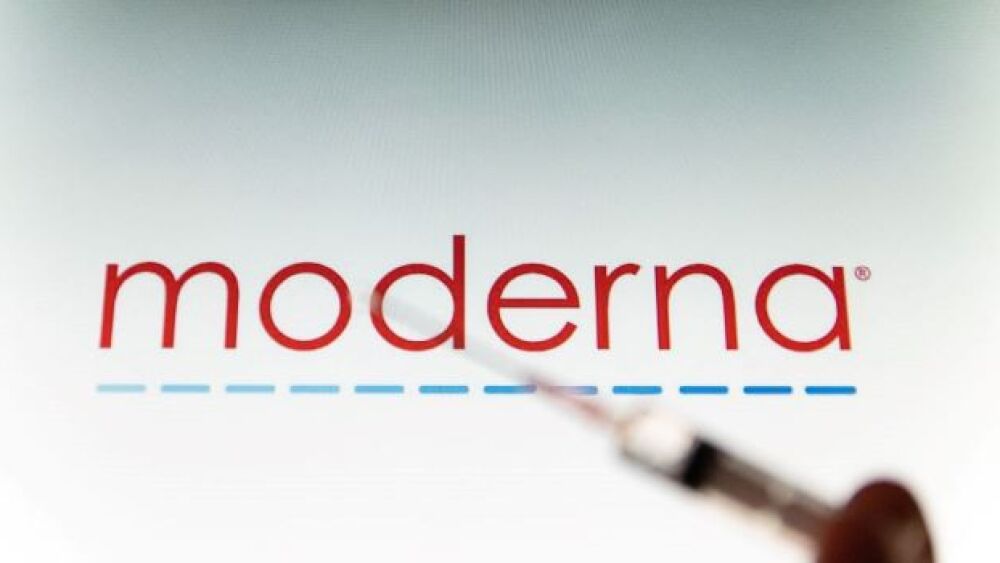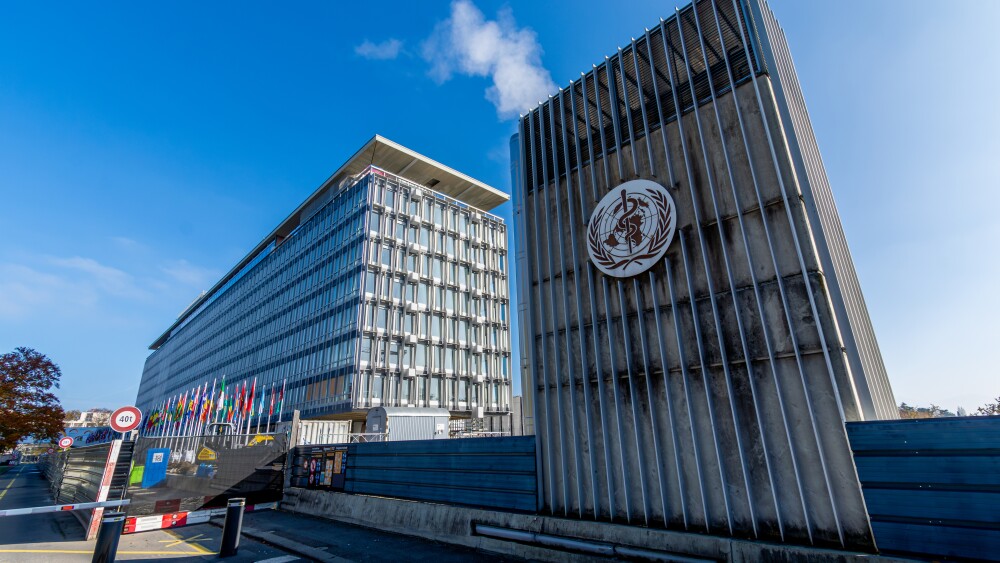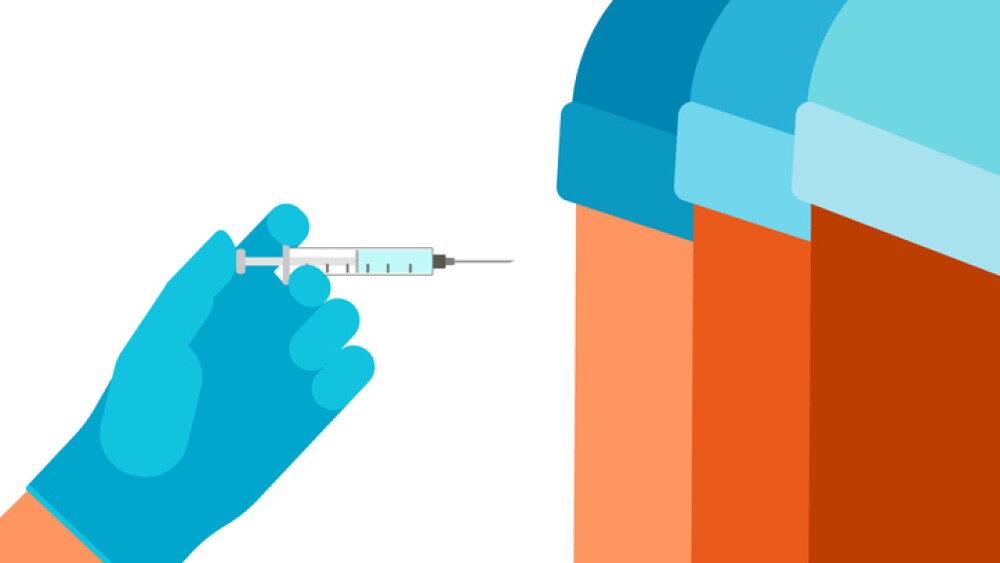Moderna announced it has started development on a booster to its COVID-19 vaccine, which the company hopes will work against the recently discovered (and more transmissible) SARS-CoV-2 variant from South Africa.
Nicolas Economou/NurPhoto via Getty Images
Moderna announced it has started development on a booster to its COVID-19 vaccine, which the company hopes will work against the recently discovered (and more transmissible) SARS-CoV-2 variant from South Africa.
According to researchers, Moderna’s COVID-19 vaccine mRNA-1273 appears to be effective for protecting against B.1.1.7 and B.1.351, two highly infectious strains first discovered in the U.K. and South Africa, respectively.
The South African B.1.351 variant features ten mutations found in the spike protein of SARS-CoV-2, the novel coronavirus responsible for COVID-19. Variants from both the U.K. and South Africa have spread quickly across the globe, with some data suggesting these variants are associated with increased transmission and greater post-infection viral burden.
While the Moderna mRNA vaccine appears to be 94% effective at preventing COVID-19, it may be less effective for the South African strain, according to a study from the company and the National Institute of Allergy and Infectious Diseases. This lower efficacy provides justification for the need of a booster for the authorized two-dose vaccine, given the rapidity of viral transmission observed with other strains.
In the new in vitro study, researchers investigated the ability of the mRNA-1273 vaccine to generate neutralizing antibodies against the U.K. and South Africa variants. The study included sera obtained from eight participants from a Phase I clinical trial who were treated with two 100 µg doses of the vaccine. Separately, the investigators also studied the effects of the vaccine with sera obtained from non-human primates (NHPs) immunized with two doses of 30 µg or 100 µg of the mRNA-1273 vaccine.
There was an approximately six-fold reduction in the vaccine’s neutralizing antibody power against the B.1.351 variant in the study. Vaccination with mRNA-1273 generated neutralizing antibody titers that remained “above the neutralizing titers that were shown to protect NHPs against wildtype viral challenge,” according to a Moderna statement. In contrast, neutralizing antibody titers associated with the U.K. variant were high and generally “consistent with neutralizing titers relative to prior variants.”
“We are encouraged by these new data, which reinforce our confidence that the Moderna COVID-19 Vaccine should be protective against these newly detected variants,” Moderna Chief Executive Officer Stéphane Bancel said in a statement. “Out of an abundance of caution and leveraging the flexibility of our mRNA platform, we are advancing an emerging variant booster candidate against the variant first identified in the Republic of South Africa into the clinic to determine if it will be more effective to boost titers against this and potentially future variants.”
Following the announcement of the company’s news to develop the booster shot, shares in Moderna went up more than 10% in morning trading.
Data from non-peer-reviewed research published in the preprint server bioRxiv note that the emerging SARS-CoV-2 variant from South African can evade antibodies generated by some COVID-19 therapies.
In an interview with CNBC, Bancel said Moderna’s vaccine likely offers short-term protection against the new strain out of South Africa, but there is limited data to conclude how long that protection lasts.
Researchers suggest Pfizer and BioNTech’s COVID-19 vaccine is effective against the B.1.1.7 variant, but no data have yet been reported on the companies’ vaccine for the variant from South Africa.





